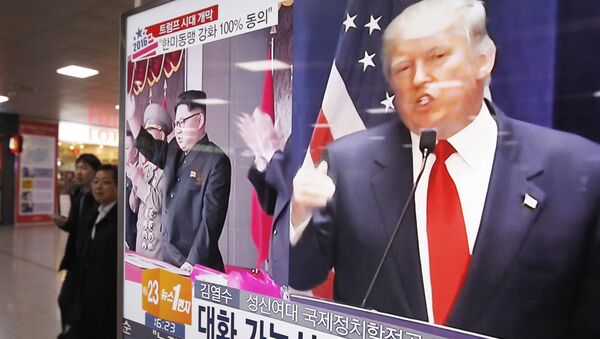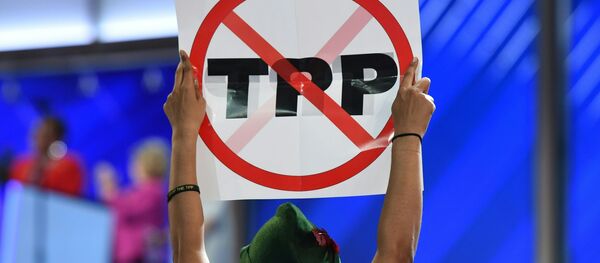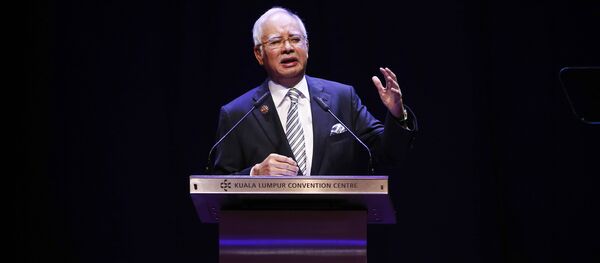The interview came after the US threatened to blacklist Chinese companies and banks if it fails to enforce UN sanctions against Pyongyang, according to senior State Department officials quoted by Reuters.
Washington is reportedly considering imposing sanctions on Chinese steel companies that make use of cheap North Korean coal. The measures could also target North Koreans who work through Chinese banks.
US officials have been expressing growing impatience with China, claiming that it has not strictly enforced existing sanctions to help curb Pyongyang's nuclear program.
Earlier, Chinese Foreign Minister Wang Yi said that his country is opposed to imposing unilateral sanctions on North Korea.
He added that there has to be "a necessary response" to the situation on the Korean peninsula and that China was ready to cooperate on that issue with members of the UN Security Council.
Commenting on the matter, John Dunn said that Beijing believes that "it is dangerous to push the North Korean regime too hard because it might simply collapse and if it collapses there will be a chaotic situation which may damage China."
It is something that adds to "very tense relations between the United States and China" which have been in place "for a long time," according to Dunn.
"America could be very inconvenient for China but at the same time, China could be very inconvenient for America, so they both have to interact in order to handle that vulnerability," Dunn said.
Asked about the possible far-reaching consequences from the US' possible imposition of penalties on China's steel companies, Dunn said that "it would certainly affect pricing on the world steel market quite a lot."
"If I were the incoming Trump Administration, I would not want to be in a major trade row with China," Dunn said adding that Beijing may "push a lot harder in the [South] China Sea which is a very unstable area."
Beijing's territorial claims to the Spratly Islands in the South China Sea, which are believed to be rich in oil and gas reserves, run counter to those of the Philippines, Taiwan, Malaysia, Brunei and Vietnam.
On September 9, Pyongyang confirmed that it had carried out a nuclear test, at its northeastern nuclear test site.
Pyongyang's January nuclear test and a long-range rocket launch in February resulted in the tightening of sanctions against North Korea in a new UN Security Council resolution adopted in March.
The United Nations previously imposed sanctions on North Korea for three tests it carried out in 2006, 2009 and 2013.






